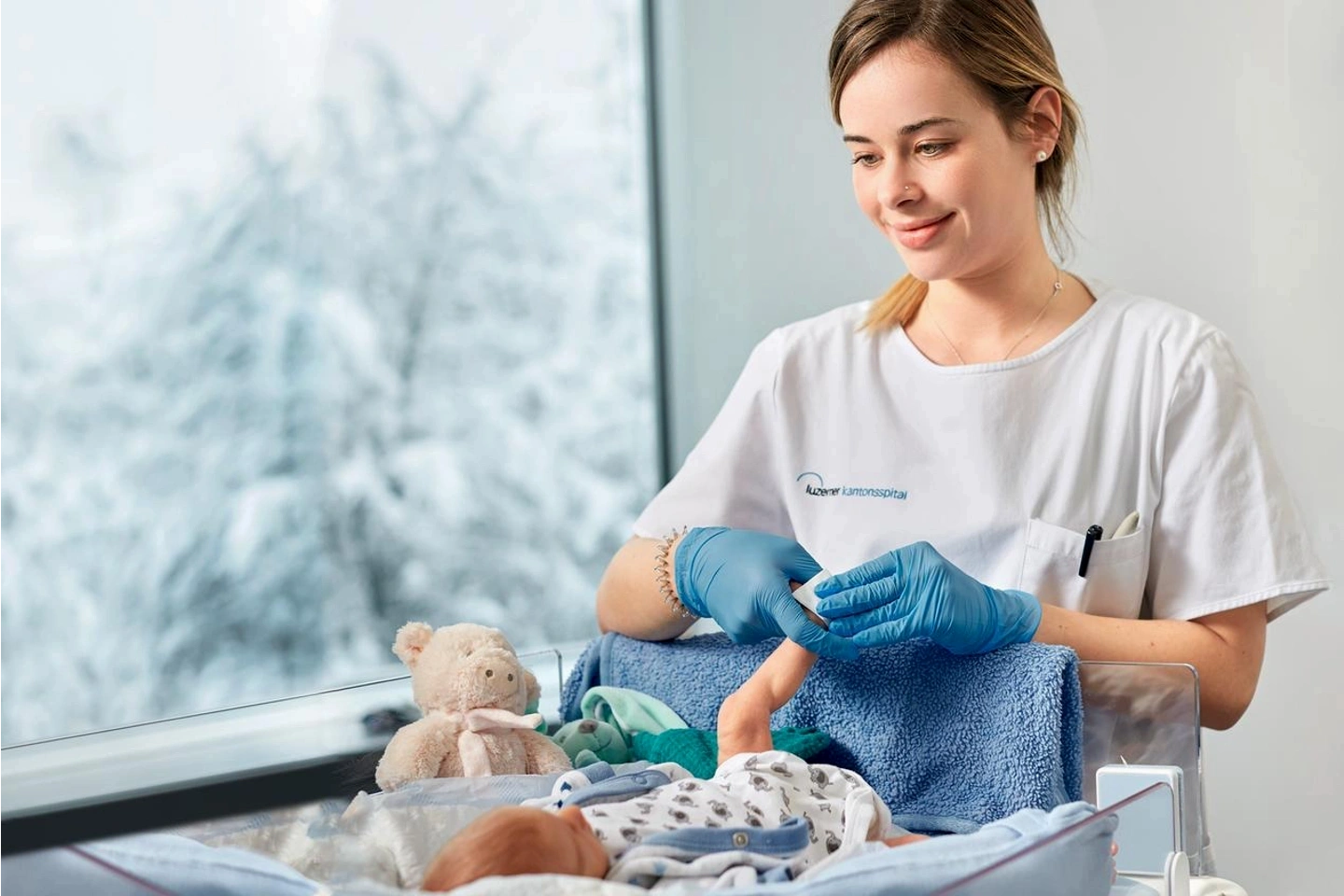Less Antibiotics for Babys
for a better start

Why
How
Raising awareness and creating a sense of urgency among the public, health care stakeholders and policymakers.
What
New strategies to treat truly infected babies as early as possible and non-infected babies as little as possible.
WHY?
In the western countries, up to 10% of babies are treated with antibiotics within the first week of life. But only 1 baby out of 1000 to 5000 has a proven bacterial infection. Therefore, medical doctors in Europe, in the USA or Australia treat a lot of babies unnecessarily. Why is this? A bacterial infection may kill a baby. Starting a therapy with antibiotics as early as possible may be lifesaving for babies truly infected. Therefore, many babies with a small risk to have a bacterial infection are currently treated with antibiotics. Unfortunately, there is no easy way to distinguish truly infected babies from babies with symptoms due to other reasons (i.e. respiratory distress due to a prolonged adaptation process after birth). Fear to miss a truly infected baby is the driver of this massive overuse of antibiotics.
Within the last decade, clinical researchers were increasingly able to show that unnecessary antibiotics may harm the baby. Exposure to antibiotics early in life may change the individual microbiota, the good bacteria within our body. A disruption of the early development of the microbiota may have future consequences for the individual health of the baby. Chronic illnesses as inflammatory bowel diseases, eczema, diabetes or asthma may be triggered through an abnormal development of the microbiota. And the beginning of life is the most important period in life for development of the microbiota. In addition, unnecessary antibiotics promote the resistance of bacteria and there is a true risk that we may not be able to treat truly infected babies in the future due to resistant bacteria.
"There is a huge overtreatment of babies with
antibiotics within the first week of life"
HOW?
Raising awareness can make a difference. If a mother knows about the problem of unnecessary antibiotic therapy, she may ask her doctor if the treatment is truly necessary or if the treatment is more a standard management to her baby with only minimal risks. She may discuss alternative options as close observation of her baby at the hospital and starting antibiotics only if her baby develops clinical symptoms. Important note: In some babies antibiotics are truly needed and may be lifesaving.
Medical doctors have completed a long training to be doctors. Prescription of antibiotics is one of the most frequent actions done by doctors. As we all know, it is not easy to change. To change a longstanding management, doctors need to be convinced that this change is truly necessary. Therefore, we need to create a sense of urgency. Doctors need to know the problem of unnecessary antibiotics and they need to know that parents care about that problem. Medical publications and educational programs for doctors are one way to support this change process. The questions and requests of the public are other ways to create a sense of urgency. In the decade of family-centred care, parents and family members with their vision and prospect are key for the management plan of their children. Therefore, we need your support as parents, future parents, families, and relatives.
"Creating a sense of urgency is mandatory for the needed change process"
WHAT?
Clinical researchers and authors of the AENEAS study (Antibiotic Exposure for suspected Neonatal EArly-onset Sepsis) are at the upfront tackling antibiotic overuse at the start of life. On November 23, their study regarding antibiotic exposure in the first week of life is published in JAMA Network Open, one of the leading international medical journals. This study included 757’979 infants born in thirteen networks from eleven countries in Europe, North America and Australia. 2.9% of neonates were started on antibiotics during first week of life. The observed range across networks varied dramatically from 1.2% to 12.5% across networks. Incidence of early-onset sepsis (EOS: bacterial infection starting within the first week of life) was 0.049/1000 livebirths (range 0.18-1.45), and sepsis-associated mortality was 3.2%. Therefore, the rate of antibiotic exposure is disproportionately high compared to the rate of EOS, suggesting that antibiotic exposure may be safely decreased.
The AENEAS study is just the first step to get better. We are planning an international, open-source dashboard to improve easy accessible information regarding antibiotic exposure and bacterial infections at the start of life. Through education and benchmarking, changes in practice and new management strategies, and through fair communication between doctors and families, less antibiotics for babies may be possible.
